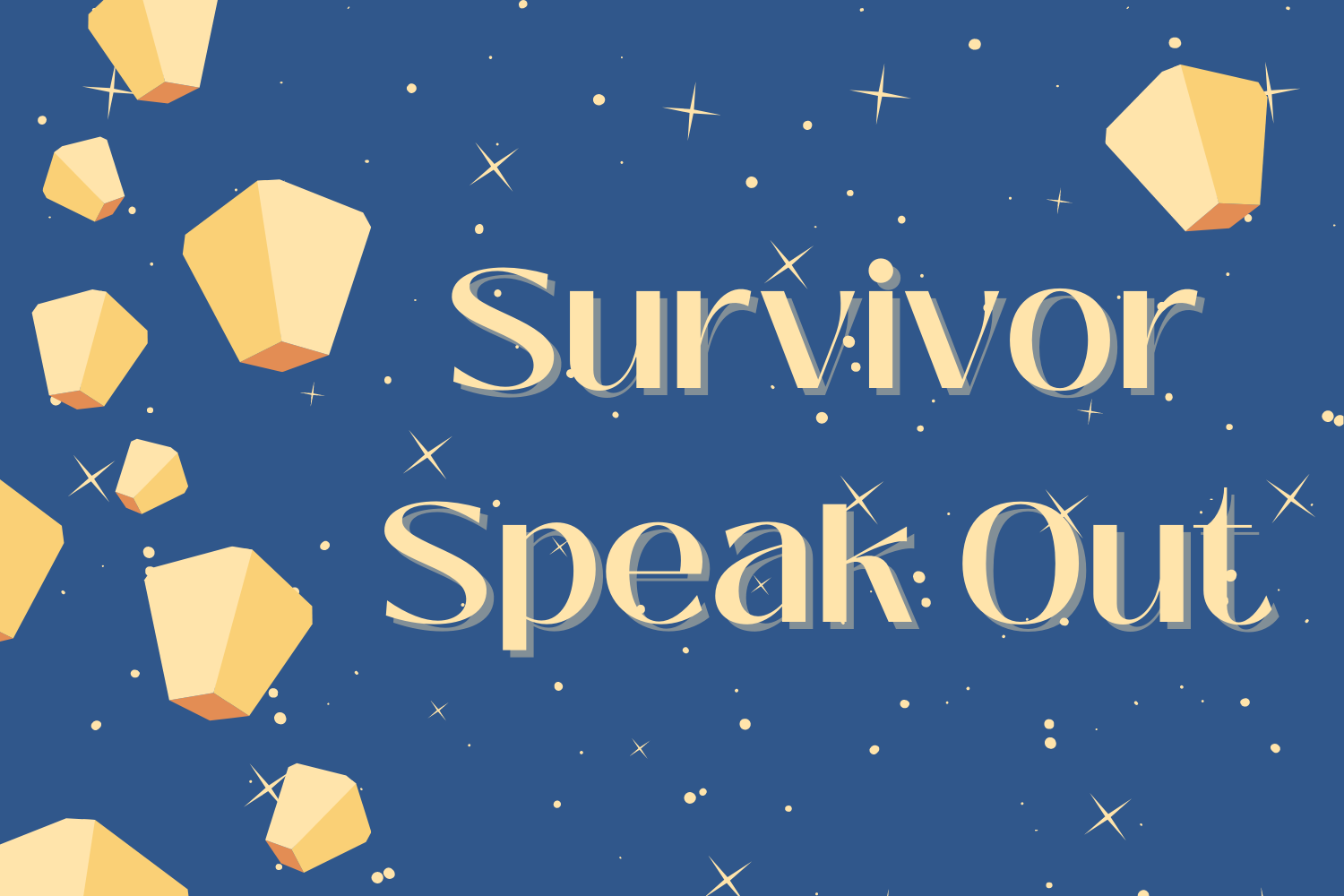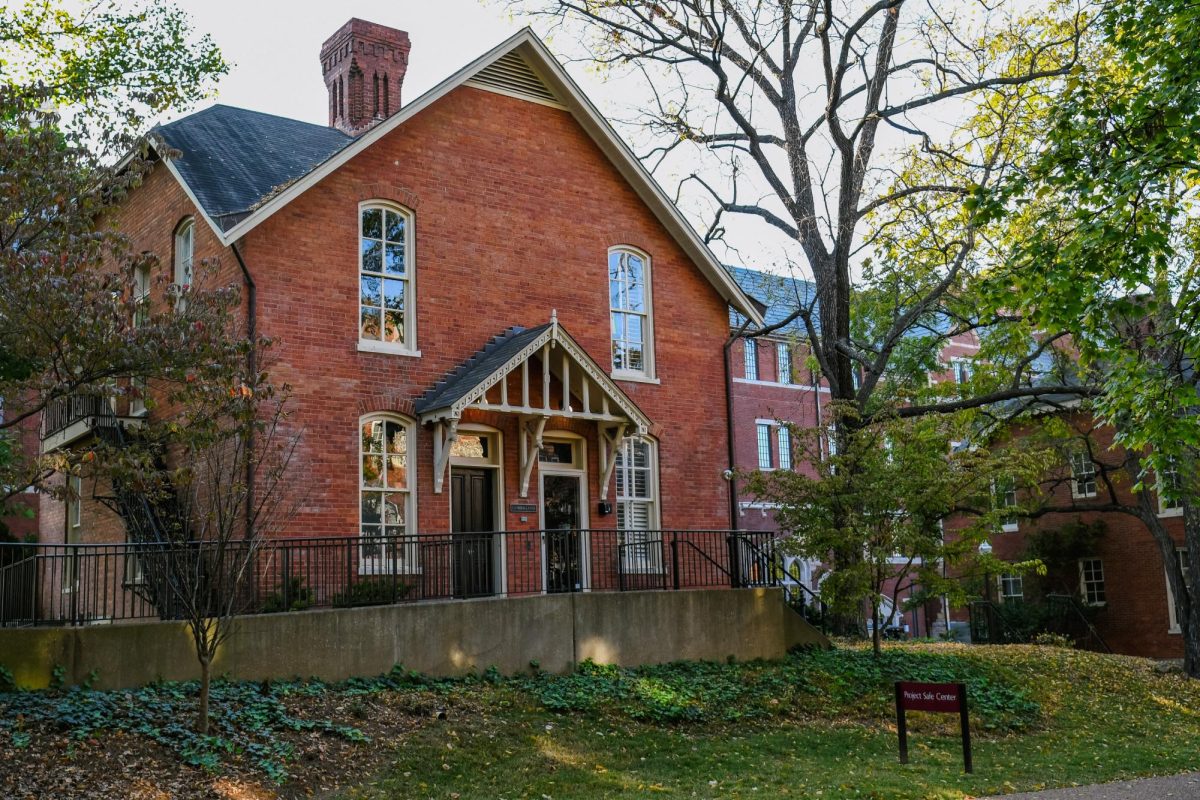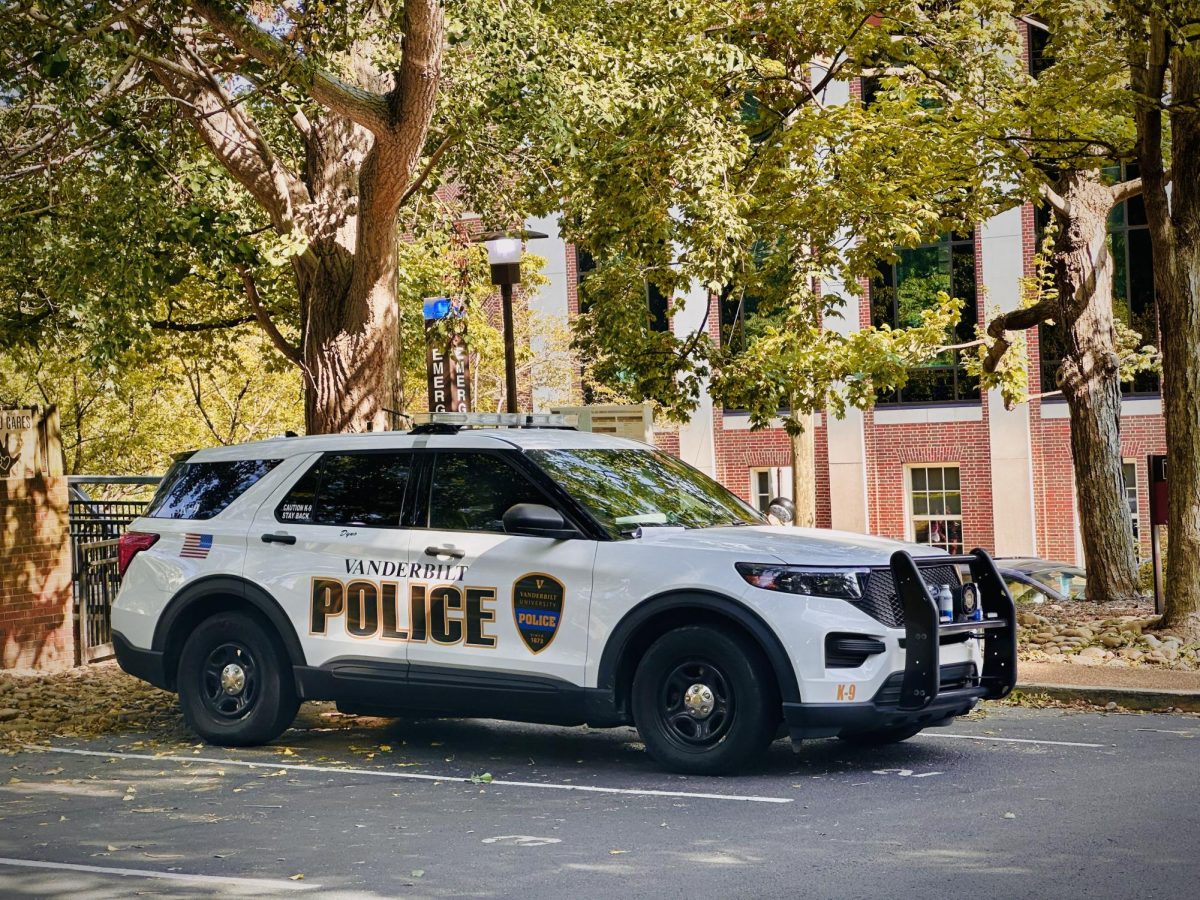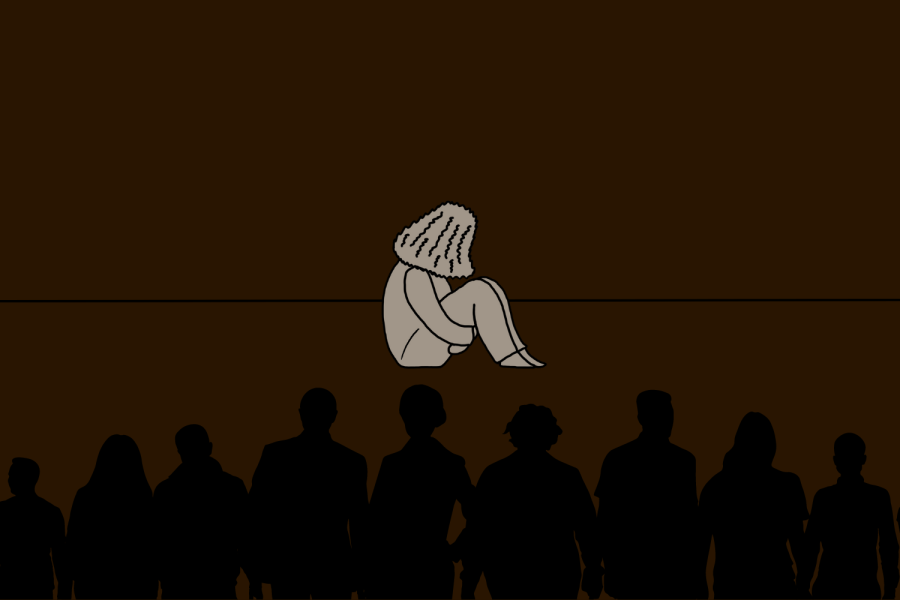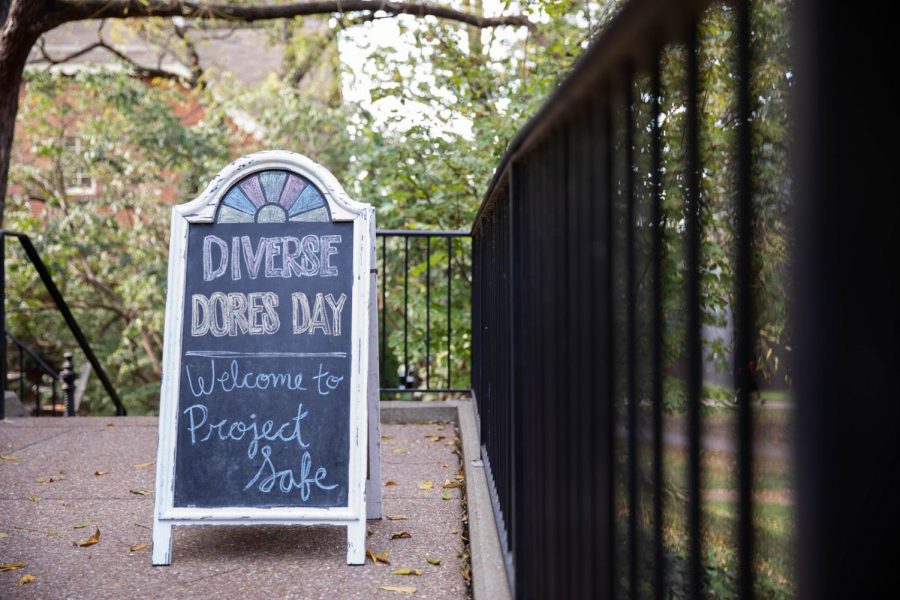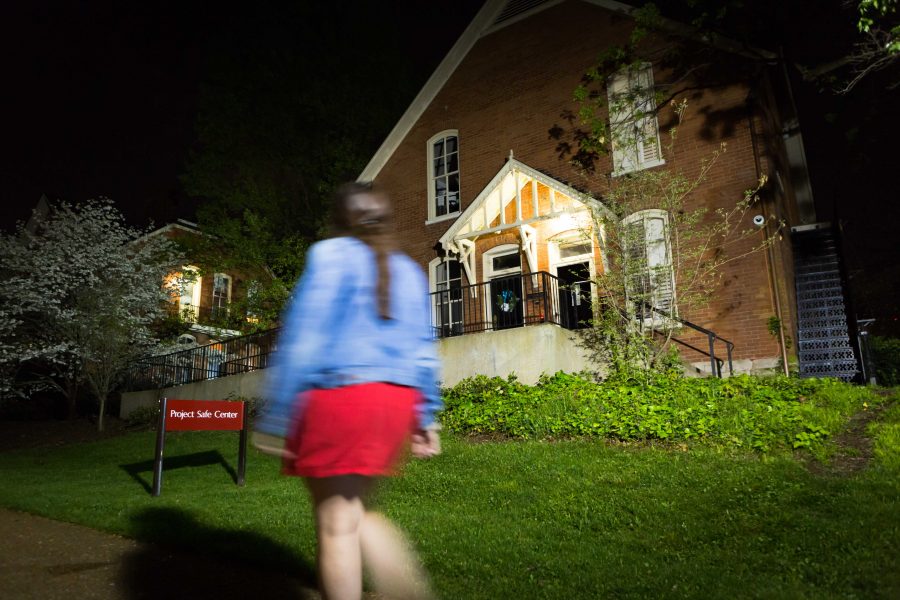Editor’s Note: This piece contains mention of sexual assault. The Hustler has elected to publish this story with the author’s first initial rather than her full name to ensure her personal and professional protection while bringing an important story to our readers that would not otherwise be possible.
Author’s Note: This is a piece I wrote leading up to Vanderbilt’s Project Safe Center’s Survivor Speak Out event held on April 14, 2022, that I am sharing for the first time here. While I honestly feel that the man who assaulted me is most at fault, I trusted Vanderbilt to honor my right to safety and healing, and they did not. Thus, my Speak Out is on them with the hopes they will hear me and try harder for the next survivor.
The university would have you believe that the worst thing you can be on campus is not a rapist but a survivor.
Know that sexual assault is a crime, the university warns. Protect yourself and each other. Through this all, I have learned that, while the one responsible for what happened to me was a man, I am the one who must fight off the blame—the university’s and my own.
I am a sophomore here at Vandy. I am sharing my story with the intention of highlighting the diversity of experiences within survivorship, validating others and promoting change at the university that I love. I hope that as April, Sexual Assault Awareness Month, comes to a close, conversations around sexual assault survivors remain salient, productive and—above all—kind.
That glorious summer following my first year of college is now in my mind reduced to one half-hour, locked in a bathroom with a man I had known since middle school. At first, I was fully consenting. I had no idea that he had a violent streak, or that he was planning on forcibly overstepping all of my boundaries. In a second, I went from upright and active to incapacitated, learning in real time that some men see no difference between sex and violence. I was so dizzy the entire time I was raped that it felt like a particularly bad dream.
The next morning, I sat on the bathroom floor, staring at the corner of the sink that had hit my skull, cataloging my various bruises. I started getting headaches and dizzy spells. Everyone that I told tried valiantly to convince me to report it, despite my refusal to treat it as anything but a joke.
The idea of telling a police officer what had happened to me made me want to roll up in a ball and cry. So I didn’t report it. I entered my sophomore year. For nearly a month, I kept it together—until I found myself in the Project Safe office for an unrelated housing situation, furious at the indecency of all my experiences. At that moment, I realized what I had survived. I couldn’t stop crying.
My semester was derailed. I was so burdened by shame and regret that it drove me to complete distraction. I ignored my homework, dreading the arrival of other people’s worst nights to my email, all titled “CONTENT WARNING: Security Notice – Sexual Assault.” Project Safe helped facilitate a Dean’s note informing my professors that I was “experiencing significant challenges of a personal nature” and thus finding “the completion of academic requirements very difficult.” Despite this measure, I was drowning in piles of late work. Bad days outnumbered good moments. I updated professors on my status and was at times met with kindness and flexible deadlines—at other times total apathy. I was completely overwhelmed.
I was in 17 credit hours, as recommended by my advisor for the timely completion of my degree program. I was behind in 14 of them. I never really caught up.
One week after my Dean’s note was received by all my professors, I received a disappointing grade on an exam and quietly left the classroom, trying not to cry. As I departed, my professor loudly called me out for leaving in front of half of the people in my major. I went home in tears. Later, one of my peers demanded that the professor apologize. I will remember her kindness and advocacy on my behalf for the rest of my life.
I asked another professor if I could have an extension on the weekly problem set because I had a Dean’s note, facilitated by Project Safe. He asked me the reason for its issuance. When I stammered through a response, he waved me off and extended the deadline by a day.
Despite the syllabus saying only that we would view a film, a third professor showed a documentary with graphic descriptions of an infamous sexual assault. I was sitting in the middle of the classroom, unable to leave, completely unprepared to sit through 45 minutes of triggering content.
The professors were, I’m sure, trying to keep me accountable and on track, but Vandy’s policies further wounded me. I could not take any of my classes on a pass-fail basis and still count them towards achieving my major. Withdrawing from or failing any of them would mean taking an extra semester to complete my degree─ exceeding the maximum of eight semesters that are covered by Vanderbilt’s institutional financial aid programs.
It was all too much for me. I deleted the line in my course plan spreadsheet hoping for a 3.5 GPA and a splashy summer internship. The pressure to be competitive, to be fine, was unrelenting. I was cracking under it. I couldn’t look any man in the eyes who reminded me of my rapist, in the way they walked or the color of their hair, their first initial, their friendliness. I couldn’t fight off any more men who made unwanted advances. I was made helpless.
None of this was my fault. I was raped, and it understandably affected my ability to thrive. Even still, I told myself, I should have known. I was warned, over and over, that this was a possibility.
So I had no choice but to accept my miserable transcript, all-encompassing guilt and slacker status. I ignored everyone’s contempt, most of all my own, and tried to convince myself that I did the best I could. I pretended that it was all his fault, when everything I saw told me it was mine.
When I came to Vanderbilt, I had no idea that any of this would or could happen to me. I had all the confidence in the world that this school, with its vast resources and elite academic ranking, would want to help me if I only asked. I saw my acceptance letter as an entry into a protective, collaborative community.
The man who raped me is not a part of this community. He is not a Vanderbilt student and never has been, never will be. I was not assaulted on Vandy’s campus, under the responsible eye of a mandatory reporter. Thus, Vanderbilt’s only consideration in this assault was me, returning back for my second year—a victimized student trying her hardest to stay afloat, to positively represent Vandy and myself.
I felt abandoned by the university on an institutional level, in operations that far exceeded personal responsibility.
The rhetoric on sexual assault here is poisonous. I still sometimes feel it was my fault— not only the assault but my response to it. How many sexual assault prevention orientations had I attended? How many times have I read those bullet points under AlertVU emails? I thought I had all the tools to protect myself, from my rapist and the aftermath, and I failed on both counts.
I know now that I did protect myself. I tried to stop my rapist, and when I was unsuccessful, I fought for space to heal. I fought to pass my classes, when it would have been completely understandable if I took a leave. I managed to stay on track for an eight-semester path, even if I didn’t achieve all that I wanted. I met people who were kind to me and shielded myself from those who weren’t. I tried my hardest to keep my rapist from ruining my future.
I just wish that it felt like Vandy had my back.
If over half of the sexual assault notifications in my inbox mention Vandy dorms, why doesn’t housing do more to ensure safe living spaces? Why doesn’t the administration have guidelines for professors receiving Dean’s notes facilitated by Project Safe? Why are pass-fail limits so strict? Would Vandy have preferred that I went home?
In March of 2022, photographed only a few hundred feet away from my dorm, a man ran up and down Vandy’s campus, groping women for two straight days. This particular offender still evades arrest. A month after this event, Vanderbilt sent students an email saying a “fondling suspect” was caught, failing to immediately identify that this was a “suspect” from a different event who was originally at large in January. Why was a security update so ostensibly vague? Why didn’t they specify that the one from last month was not caught? Why send an email that leads students into a false sense of security?
If I were to take a poll of everyone on campus right now, how many people would say that if they were raped, they felt confident that Vandy would do right by them? In 2019, the American Association of Universities Campus Climate Survey on Sexual Assault and Misconduct noted that 72.7% of Vanderbilt undergraduates believed that it was “very or extremely likely” that campus officials would take a sexual assault report seriously. Fewer students, 53.6%, believed that officials would conduct fair investigation into reports of sexual misconduct. That’s barely a majority. In Vanderbilt’s summary of the survey’s findings, they reported that 98% of Vanderbilt students “have confidence that a report would be taken seriously.” This number is found by adding all responses together, including “a little” and “somewhat” confident, omitting only those that say “not at all” confident. Is omitting “a little” and “somewhat” in the summary not intentionally misleading? Why is anything less than 100% enough? Why is Vanderbilt vague regarding our safety? What has Vanderbilt done to reassure us that we are protected?
Vanderbilt can’t stop perpetrators from existing. It is not Vanderbilt’s fault that I was raped, and it still wouldn’t be if my rapist was a Vanderbilt student. But they can prevent sexual assaults in making avenues for assault more difficult. They can support survivors wholeheartedly and proudly. Project Safe and my University Counseling Center therapist were incredible resources for me, but they had no power around my academics. Administration has so much power—in precedent, in spending, in the kinds of people they hire and the charges they overlook.
Returning to school from winter break, I was hopeful for a fresh start. Vanderbilt’s leaders had a chance to make my experience, and those of other survivors, different. Still, the AlertVU emails keep coming, and, over and over, I mark them as read. I try, like I am ordered, to protect myself and live like everything is fine and fair and my failures are my own. Thankfully, I can survive anything, even failure. Even this university. Even myself.
That is what I have learned.
April is Sexual Assault Awareness Month. Even as this month comes to a close, I hope that the Vanderbilt community continues to seek awareness on the realities of sexual assault and violence. Support your friends who are survivors; condemn offenders and advocate for institutional change to insensitive policies. Please remember that we’re all trying our best with what we are given, seen and unseen.


